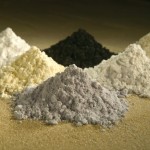The Godrej family, a titan in the Indian corporate landscape for over 120 years, is undergoing a significant shift. According to reports citing anonymous sources, the family is headed for an amicable split of their business empire, the Godrej Group, estimated to be worth ₹1.76 lakh crore (US$22.3 billion).
History and Brands
Established in 1887 by Ardeshir Godrej, a lawyer, the Godrej Group has since diversified into various sectors, including consumer goods, appliances, real estate, security solutions, and chemicals. Known for its pioneering spirit, the group was the first Indian company to manufacture locks and introduced iconic products like Godrej soap. Their brands such as Cinthol, Goodknight, and Hit are synonymous with quality and trust in Indian households. Additionally, the group demonstrates a strong commitment to sustainability through initiatives like "Godrej Green," emphasizing environmental and social responsibility.
The Split
The split involves two factions: Godrej Industries & Associates led by Adi and Nadir Godrej, and Godrej & Boyce Manufacturing Company (G&B) led by cousins Jamshyd Godrej and Smitha Godrej Crishna. G&B's Jamshyd Godrej is advised by banker Nimesh Kampani and lawyer Zia Mody, while Adi Godrej's side is assisted by legal firm Cyril Amarchand Mangaldas and banker Uday Kotak. Adi's son Pirojsha Godrej, heading Godrej Properties, is directly involved in the discussions.
Potential Reasons for the Split
While concrete details haven't been officially released by the Godrej family, industry insiders speculate on the driving forces behind this move. Here are some potential factors:
Table of contents [Show]
Differing Business Philosophies
Across two generations, the Godrej family has grown significantly. Divergent views on business strategies and future direction could be a contributing factor. Perhaps the disparate interests of cousins and siblings have made it challenging to maintain a unified vision for the entire conglomerate.
Focus and Specialization
Splitting the businesses could allow each faction to focus on specific sectors and potentially achieve greater specialization and efficiency. This could lead to a more streamlined approach and improve performance within individual companies.
Negotiations are ongoing regarding the usage of the Godrej brand name, royalty payments, and the valuation of land held by G&B. The formal split plan will determine the division of various business verticals such as real estate, consumer products, engineering, appliances, security solutions, and agro-commodities.
Succession Planning
With multiple family members involved, succession planning can be complex. A division could be a way to clarify leadership structures and ensure a smoother transition for future generations within each separate entity. Disentangling cross-holdings among family members and trusts is a complex aspect of the split.
Unlocking Shareholder Value
Simplifying the corporate structure could potentially enhance shareholder value. By separating businesses with distinct growth trajectories, investors might gain better visibility into individual companies' performance.
Market Impact
The split could affect the stock market performance of Godrej companies. Investors might closely monitor the restructuring process and evaluate the future prospects of each separate entity. The Godrej group comprises five listed entities with a combined market capitalization of ₹1.76 trillion and a cumulative profit of ₹4,065 crore in FY23, with a revenue of ₹42,172 crore during the fiscal year.








